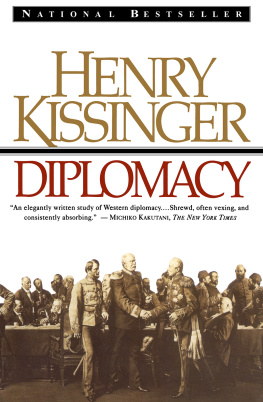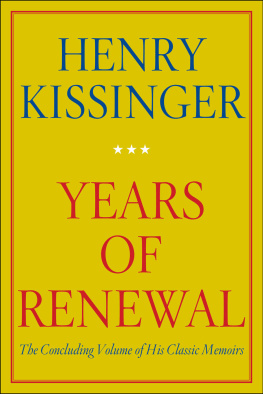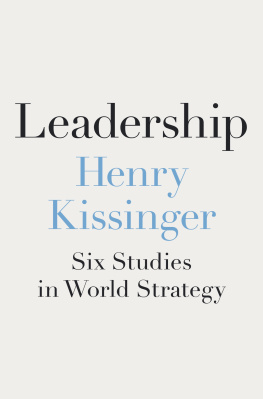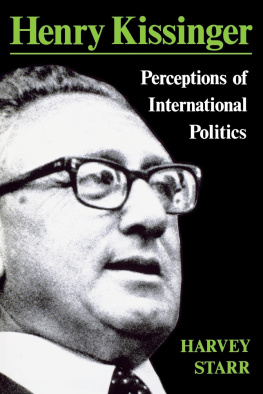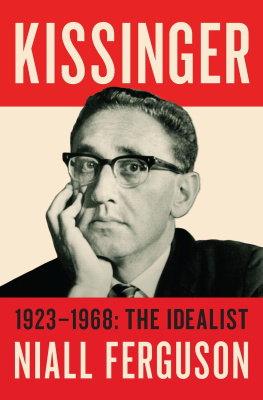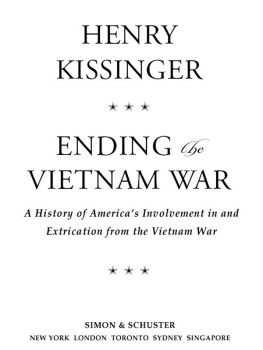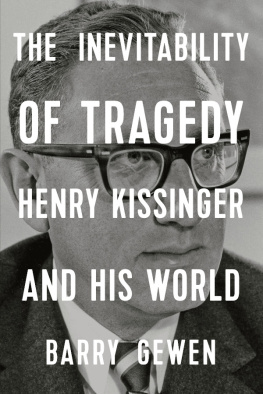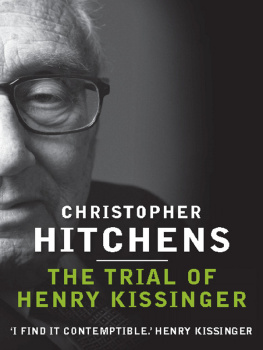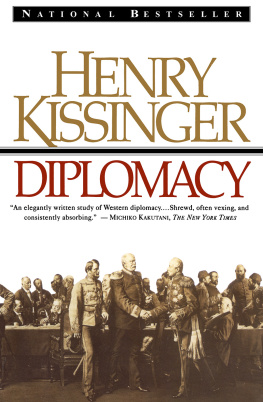Robert K. Brigham - Reckless: Henry Kissinger and The Tragedy of Vietnam
Here you can read online Robert K. Brigham - Reckless: Henry Kissinger and The Tragedy of Vietnam full text of the book (entire story) in english for free. Download pdf and epub, get meaning, cover and reviews about this ebook. year: 2018, publisher: PublicAffairs, genre: Politics. Description of the work, (preface) as well as reviews are available. Best literature library LitArk.com created for fans of good reading and offers a wide selection of genres:
Romance novel
Science fiction
Adventure
Detective
Science
History
Home and family
Prose
Art
Politics
Computer
Non-fiction
Religion
Business
Children
Humor
Choose a favorite category and find really read worthwhile books. Enjoy immersion in the world of imagination, feel the emotions of the characters or learn something new for yourself, make an fascinating discovery.

- Book:Reckless: Henry Kissinger and The Tragedy of Vietnam
- Author:
- Publisher:PublicAffairs
- Genre:
- Year:2018
- Rating:3 / 5
- Favourites:Add to favourites
- Your mark:
- 60
- 1
- 2
- 3
- 4
- 5
Reckless: Henry Kissinger and The Tragedy of Vietnam: summary, description and annotation
We offer to read an annotation, description, summary or preface (depends on what the author of the book "Reckless: Henry Kissinger and The Tragedy of Vietnam" wrote himself). If you haven't found the necessary information about the book — write in the comments, we will try to find it.
Reckless: Henry Kissinger and The Tragedy of Vietnam — read online for free the complete book (whole text) full work
Below is the text of the book, divided by pages. System saving the place of the last page read, allows you to conveniently read the book "Reckless: Henry Kissinger and The Tragedy of Vietnam" online for free, without having to search again every time where you left off. Put a bookmark, and you can go to the page where you finished reading at any time.
Font size:
Interval:
Bookmark:
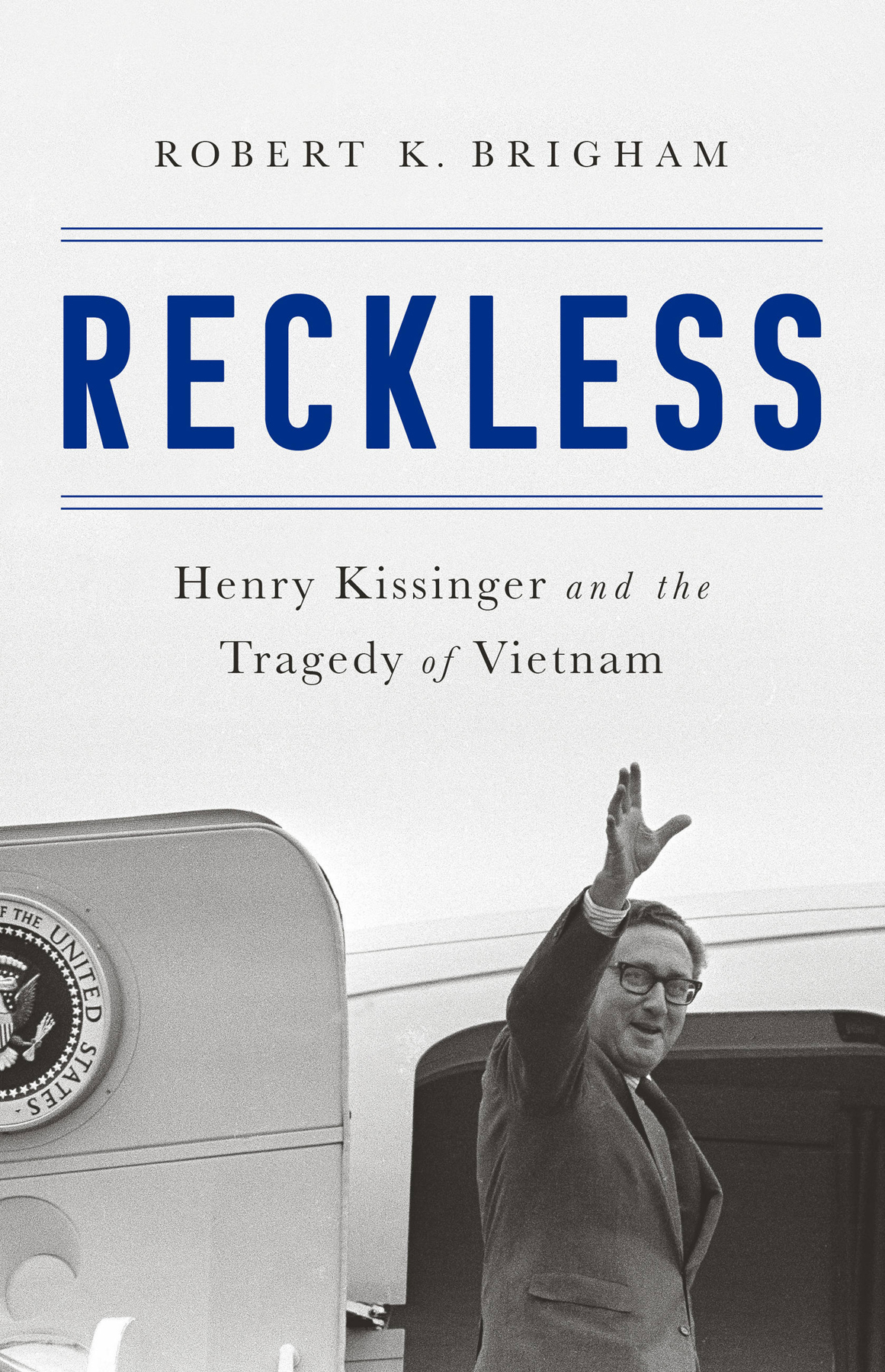
Copyright 2018 by Robert K. Brigham
Hachette Book Group supports the right to free expression and the value of copyright. The purpose of copyright is to encourage writers and artists to produce the creative works that enrich our culture.
The scanning, uploading, and distribution of this book without permission is a theft of the authors intellectual property. If you would like permission to use material from the book (other than for review purposes), please contact permissions@hbgusa.com. Thank you for your support of the authors rights.
PublicAffairs
Hachette Book Group
1290 Avenue of the Americas
New York, NY 10104
www.publicaffairsbooks.com
@Public_Affairs
First Edition: September 2018
Published by PublicAffairs, an imprint of Perseus Books, LLC, a subsidiary of Hachette Book Group, Inc. The PublicAffairs name and logo is a trademark of the Hachette Book Group.
The Hachette Speakers Bureau provides a wide range of authors for speaking events. To find out more, go to www.hachettespeakersbureau.com or call (866) 376-6591.
The publisher is not responsible for websites (or their content) that are not owned by the publisher.
Library of Congress Cataloging-in-Publication Data has been applied for.
ISBNs: 978-1-61039-702-5 (hardcover); 978-1-61039-703-2 (ebook)
E3-20180716-JV-NF
For Monica and Taylor
It either works or it doesnt, and it doesnt matter.
Richard M. Nixon
T HIS BOOK CHRONICLES Henry Kissingers management of the Vietnam War. It focuses on his efforts to combine military strategy with diplomacy to extricate the United States from Vietnam with honor. Kissinger inherited a weak bargaining position on Vietnam, but he still believed that he, and he alone, could deliver a favorable peace agreement.
When Henry Kissinger entered the White House in 1969 as President Richard Nixons national security adviser, there were over 500,000 US troops in Vietnam. American combat deaths were about two hundred each week, a number that was likely to grow as Communist forces increased their assault on South Vietnam. The cost of the war to US taxpayers was $30 billion per year. Kissinger believed that these conditions demanded a negotiated settlement to the war. There were simply too many explicit constraints on US power to make a military victory likely. However we got into Vietnam, he observed, whatever the judgment of our actions, ending the war honorably is essential for the peace of the world.
An honorable peace, according to Kissinger, had to meet several essential conditions. First, there had to be a lasting cease-fire between North Vietnam and South Vietnam. This cease-fire had to include the neighboring countries of Laos and Cambodia, both of which had been caught up in the conflict. Second, there must be a mutual USNorth Vietnamese troop withdrawal from South Vietnam. North Vietnamese forces operating in Laos and Cambodia also had to be redeployed to North Vietnam. Third, North Vietnam had to recognize
To accomplish his strategic peace with honor goals, Kissinger promoted a tactical war for peace in Vietnam. But where has there ever been a successful war for peace? Its a theorists concept, possible only if one is very distantly removed from the actual business of killing and dying and the aftereffects that produces. Still, with the arrogance and hubris of someone new to power, he confidently assured Nixon that he could pressure Hanoi to accept concessions it had routinely rejected during Lyndon Johnsons presidency by combining great power diplomacy with savage military blows against North Vietnam. He also advocated attacks against North Vietnamese sanctuaries inside Laos and Cambodia and the mining of North Vietnamese ports. I cant believe that a fourth-rate power like North Vietnam doesnt have a breaking point, Kissinger told his aides during his first weeks at the White House. Hit them, he told Nixon, and Hanoi would beg for private talks.
Finding that delicate balance between military strikes and skillful negotiations was exactly what Kissinger believed was his specialty. In over five decades of telling and retelling his role in the Vietnam War, Kissinger has carefully constructed a narrative that is detailed, somewhat self-effacing, and on the surface, balanced. He has skillfully mixed criticism of the Nixon administrations policies with disdain for its critics. He has both downplayed the wars expansion on his watch and celebrated it. He blamed Kennedy-style idealism for the US entry into the war and championed his own realism for ending it. Kissinger gave the United States an honorable withdrawal from Vietnam, he claims, by linking Hanois geopolitical desires to security guarantees for the United States South Vietnamese allies. In the end, Kissinger argues that Watergate and a weak-kneed Congress had made it impossible to defend South Vietnam, not his failures as a negotiator or strategist.
The Vietnam War remains Kissingers most enduring foreign policy legacy. No war since the American Civil War has seared the US national consciousness like Vietnam. The controversies surrounding it tore the nation apart, and its legacies continue to shape US foreign relations today. Kissingers role in this war has been studied in detail, but this book is the first to hold his record to a scrupulous account based on his own definitions of success and the evidence provided by recently released material in the Richard Nixon Presidential Library, Kissingers papers at Yale University, and South Vietnamese sources contained in the National Archives in Ho Chi Minh City, Vietnam. On the strength of that it is clear that the national security advisers war for peace was more than oxymoronic: it was a total failure. Kissinger failed in each of his stated goals to achieve peace with honor. He failed to end the diplomatic deadlock in Paris or to negotiate a political settlement in South Vietnam that left the Saigon government a reasonable chance to survive following the American withdrawal. He failed to use great power diplomacy or military force to compel Hanoi to make compromises in the Paris negotiations. He failed to force a mutual North Vietnamese troop withdrawal from South Vietnam. He failed to neutralize Laos and Cambodia. He failed to secure a lasting cease-fire. He failed to obtain an international border at the Demilitarized Zone. He failed to link the release of all political prisoners to a lasting cease-fire. He failed to consult the Saigon government about its future until it was too late to change course in Paris.
At home, Kissinger also did much more harm than good. He failed to build a coalition of supportive allies for his war for peace within the Nixon administration or in Congress. He failed to contain US domestic opposition to his policies. He failed the president by overstating progress in Paris and the likelihood of success following US military escalation. Each of these disappointments narrowed his future options and shortened the time he had to achieve peace with honor.
Kissingers voluminous writings on the subject have obscured his failures in Vietnam, and perhaps that is the point of them. Like the Internet, Kissinger provides huge amounts of apparent information, not all of it reliable. Hes a conspiratorially minded theorist, and he often wanders far from the facts. But facts are stubborn things, and it is possible, I think, to examine the historical record in detail to offer a more complete picture of Kissinger and his failed war for peace. This research has been made easier now that his monopoly on the actual historical documents has ended. Scholars now have access to hundreds of thousands of pages of National Security Council files, the verbatim transcripts of the secret meetings in Paris, and over twenty thousand pages of Kissingers taped telephone conversations. Utilizing this new material, this book is the first to analyze the cumulative effect of Kissingers strategic and diplomatic failures on the final peace agreement. It demonstrates how Kissingers misplaced faith in his own abilities to secure an honorable peace prolonged the war unnecessarily and sealed South Vietnams fate. For all his faults, Kissinger (no matter what) could not change reality on the ground. He made a bad situation worse, however, with his reckless assumptions about the use of force and diplomacy.
Font size:
Interval:
Bookmark:
Similar books «Reckless: Henry Kissinger and The Tragedy of Vietnam»
Look at similar books to Reckless: Henry Kissinger and The Tragedy of Vietnam. We have selected literature similar in name and meaning in the hope of providing readers with more options to find new, interesting, not yet read works.
Discussion, reviews of the book Reckless: Henry Kissinger and The Tragedy of Vietnam and just readers' own opinions. Leave your comments, write what you think about the work, its meaning or the main characters. Specify what exactly you liked and what you didn't like, and why you think so.

